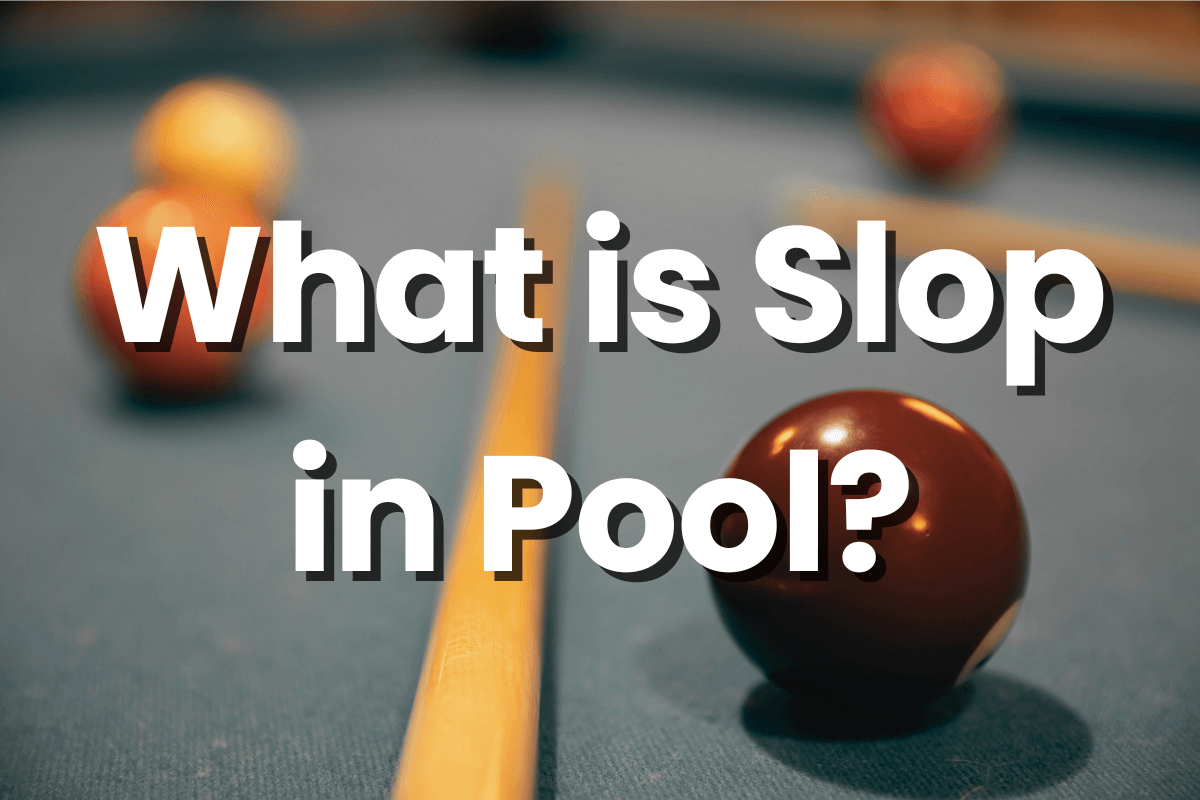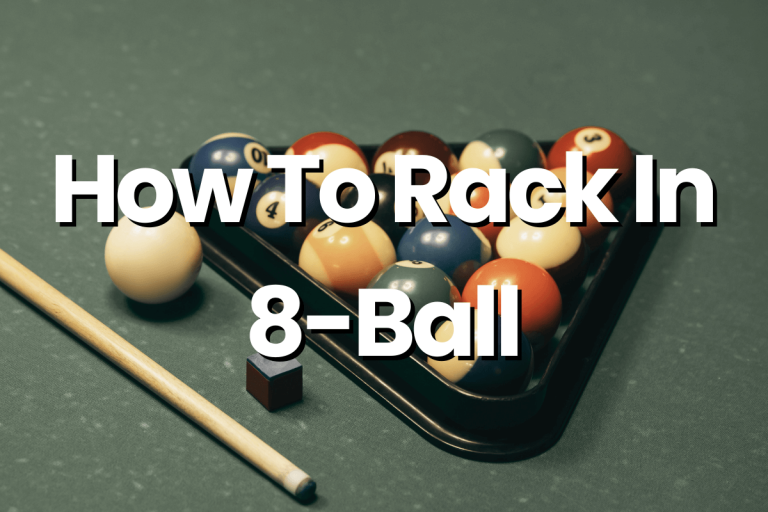Navigating Slop Pool with Ease and Fun (2024)
In the diverse world of billiards, the rules can vary significantly. While competitive games often require calling your shots, especially among skilled players, casual play tends to be more relaxed. Enter Slop Pool, a fun-filled variant where calling shots isn’t necessary, making it a favorite among those playing for enjoyment rather than competition. This article delves into the exciting realm of Slop Pool, where flexibility rules, and fun take the forefront, perfect for those looking to add a laid-back twist to their billiard games.
Slop Pool Explained
Definition of ‘Slop’ in Pool and Billiards
In the context of pool and billiards, ‘slop’ refers to a style of play where players are not required to call their shots. This means that when a player strikes the cue ball, they don’t need to specify which ball they intend to sink and in which pocket. The term ‘slop’ captures the essence of this more relaxed approach, where the focus is more on the enjoyment of the game rather than strict adherence to rules.
Differentiation from Traditional Call-Shot Games
Traditional call-shot games, common in competitive and skilled play, demand that players declare their intended shot beforehand. This includes specifying both the object ball and the pocket. Failure to sink the called shot typically results in a turnover of play.
Slop pool, by contrast, relaxes these requirements. Players are free to hit any ball into any pocket without having to declare their intentions. This leads to a game that is less about precision and strategy and more about adaptability and fun. It often results in unexpected turns and a more unpredictable game flow, making it particularly appealing for casual play or among friends.
The Rules of Slop
Basic Principles of Slop Pool Rules
- Slop rules in the pool are characterized by their leniency and informality. The core rule is that players do not need to call their shots, including both the target ball and the intended pocket. This means that any legally hit object ball that falls into any pocket counts as a valid shot, regardless of whether it was the intended target or pocket.
- Fouls, such as scratching (cue ball pocketed) or hitting the wrong ball first, are still enforced as per standard pool rules.
Slop in 8 Ball Pool
- In a traditional 8 ball pool, which is a call-shot game, each player is assigned either stripes or solids after the break, and they must clear all their balls before potting the 8 ball to win.
- Under slop rules in 8 ball, players still adhere to the stripes or solids assignment but do not need to call their shots. Any striped or solid ball pocketed, intentional or accidental, is considered a legal shot. However, pocketing the 8 ball before clearing all of your group’s balls still results in a loss.
Slop in 9 Ball Pool
- Standard 9 ball pool is inherently more aligned with slop rules. In 9 ball, players must hit the lowest numbered ball on the table first, but they do not need to call the pocket for the ball to be pocketed.
- In slop 9 ball, the primary rule remains that the lowest numbered ball must be hit first. Any ball pocketed due to that shot, regardless of whether it was the targeted ball or not, is considered legal. The game proceeds until the 9 ball is legally pocketed, deciding the winner.
Variations in Slop Play
- While the basic concept of slop remains constant, house rules can vary significantly. Some casual games might introduce elements like ‘gentleman’s calls’ (informal acknowledgment of intended shots) or modified rules for fouls and scratches.
- In both 8 ball and 9 ball slop variations, the emphasis is on a more relaxed, inclusive, and often faster-paced game, making it ideal for social play and newcomers to the sport.
The Pros and Cons of Playing Slop
Benefits of Playing Slop Pool
Accessibility for Beginners: Slop Pool’s relaxed rules make it an excellent choice for beginners who are still learning the nuances of billiards. It allows new players to enjoy the game without being overwhelmed by the complexities of call shots.
Casual and Social Play: The informal nature of the slop pool makes it perfect for social gatherings, where the focus is more on fun and interaction rather than strict competition.
Unpredictability and Excitement: The allowance of non-called shots adds an element of surprise and unpredictability, which can lead to exciting and unexpected game developments.
Fast-Paced Games: Slop pool tends to be quicker than traditional pool games because players aren’t spending time planning and declaring each shot. This can keep the game dynamic and engaging.
Drawbacks of Playing Slop Pool
Less Skill Development: Since slop pool doesn’t require precise shot planning, it may offer fewer opportunities for players to develop advanced skills and strategies that are essential in traditional pool games.
Potential for Luck Over Skill: The element of luck can play a significant role in the slop pool. Some players might find this frustrating, especially if they prefer a game where skill is the primary determinant of success.
Lack of Standardization: Given the casual nature of the slop pool, rules can vary greatly between different groups and settings, which might lead to confusion or disagreements.
Slop Pool: A Balance of Fun and Challenge
- Despite its casual rules, slop pool can still present challenges. Players must adapt to the unpredictability and use basic pool skills like aiming and cue control.
- It encourages players to think on their feet and adjust their strategies in response to the fluid nature of the game.
- The slop pool serves as a bridge for new players, offering an enjoyable and less intimidating introduction to the world of billiards while also providing a fun, stress-free alternative for experienced players.
Conclusion
Slop pool stands out as a delightful and unconventional variant of traditional billiards, offering an inviting blend of spontaneity and relaxed play. Its appeal lies in the joy and unpredictability it brings to the table, making it a favorite among casual players and those seeking a lighthearted escape. Whether you’re a seasoned player or new to the game, embracing the playful spirit of slop pool promises an enjoyable and refreshing experience.
FAQs
What exactly is slop pool?
Slop pool is a casual version of billiards where players do not need to call their shots. Any legally pocketed ball counts, regardless of whether it was the intended target.
Can beginners play slop pool?
Absolutely! Slop pool is ideal for beginners because of its relaxed rules, making it less intimidating and more accessible for those new to the game.
Is slop pool only for casual play?
Primarily, yes. Slop pool is best suited for casual, social play rather than competitive or serious billiards games. It’s all about having fun and enjoying the unpredictability of the game.
How does slop pool differ from traditional pool games?
In traditional pool games, players must call their shots, specifying which ball they plan to pocket and in which pocket. In slop pool, there is no need to call shots, making the game more unpredictable and relaxed.
Can playing slop pool improve my skills for other billiards games?
Playing slop pool can help improve basic skills like aiming and cue control. However, for more advanced skills like strategic shot planning, traditional call-shot games are more beneficial.







